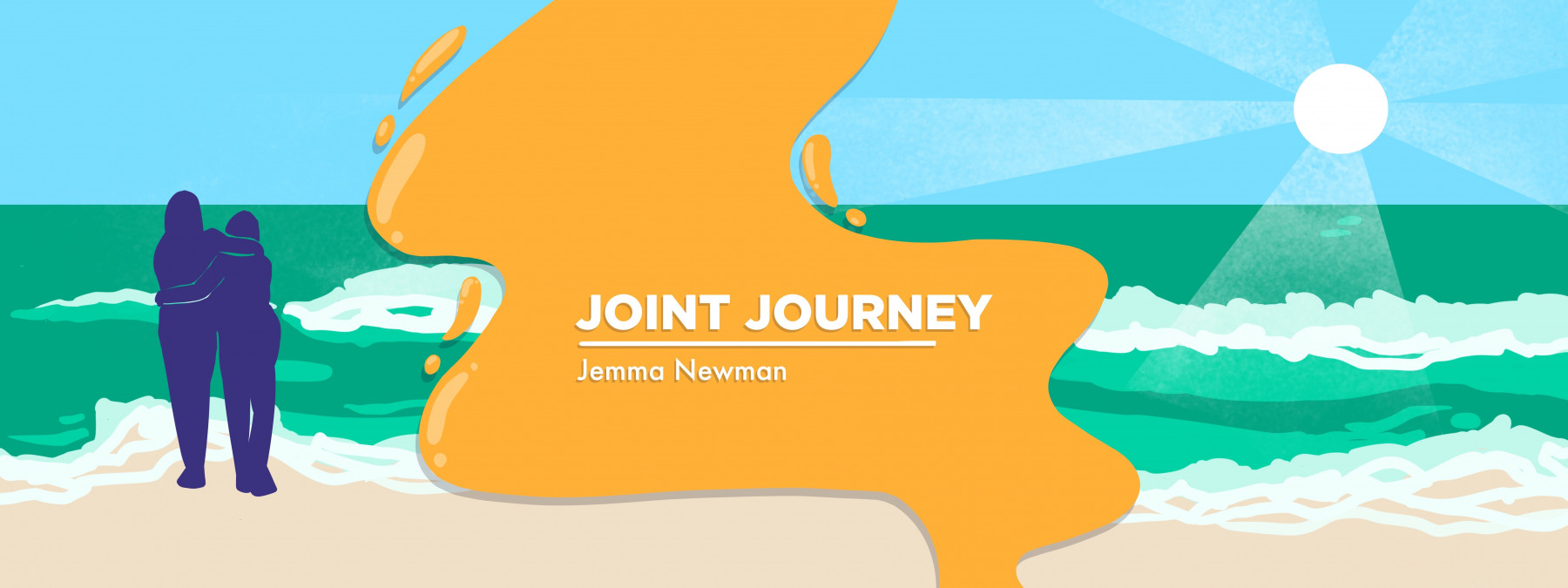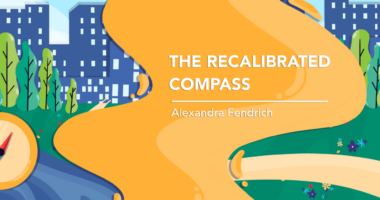My hope that rare disease awareness builds a kinder society
Our ankylosing spondylitis might be invisible, but I wish others would respect it

As I slowly loaded packets of minced beef and frozen salmon onto the supermarket checkout conveyor belt, I heard a loud and impatient sigh from behind me. Another customer was standing close by, brows furrowed, with a partly full basket dangling from one manicured hand.
I was at the tail end of a debilitating ankylosing spondylitis (AS) flare and had been counting myself lucky that I could move around enough to do a quick food shop to feed my family. But my lower back was still giving me jolts of sharp pain, and I was having a hard time lifting anything heavier than a loaf of bread.
Bracing myself with one hand on the supermarket counter to support my back, I slowly continued transferring goods from my trolley to the checkout. Apparently, my controlled movements weren’t hasty enough for the lady behind me, as she communicated her irritation with another exaggerated sigh that blasted against my bent-over back.
Part of me understands that she doesn’t know I have AS, a chronic disease that makes movement difficult at times. But the other part of me wishes there was more awareness of rare diseases, in particular invisible rare diseases. I’d like to think there would be more kindness and patience in our society if people understood that you don’t need to look frail or unwell to need help.
I don’t look obviously sick or incapable to people, I’m sure. On the outside, I’m a 6-foot-tall woman, with broad shoulders and a broader smile. I like to stride around and approach any situation with confidence and a laugh. Despite a strong-looking physique, I’ve experienced times when I can barely move. But that pain and struggle are invisible to the world.
When I’m slowed down by AS symptoms, I can’t help but feel judged by some people. Perhaps they would only show kindness and sympathy for a physically obvious impairment like a broken leg, or the use of a walker.
At the gym a few weeks ago, I was using a padded bench as I finished my stretches. A trainer bounced over energetically, calling out to me, “Hey there, would you mind moving this bench over so my client can fit in?”
I replied with a smile. “Sure, but could you please move the bench for me? It’s too heavy for my back.” The trainer’s eyebrows shot up in surprise as if he expected that I’d be perfectly capable of moving the bench myself.
A little social situation like this, or the sighing lady in the supermarket, is minor in the wider scheme of disability and chronic health issues. But when they happen often, they start to chip away at feelings of worth.
I wish our society had a better understanding of invisible disease. When my health challenges appear to be making people impatient, irritated, or frustrated, it adds to my stress. I feel the need to pretend I’m OK or go along with plans that don’t suit me, just to smooth social situations or not feel like I’m being difficult.
Invisible rare diseases like AS are so little known that it’s hard to communicate my situation to people. I often explain my condition as “I have an autoimmune disease that affects my spine,” just to be quickly understood by others. But that brief description doesn’t encompass many of the other AS symptoms that can be quite debilitating at times, but are harder to explain.
I’m hopeful that social situations will improve for people with rare diseases. In my opinion, I don’t need the specific details of ankylosing spondylitis to be understood. There are thousands of rare health conditions affecting millions of people, and I don’t think it’s feasible for the population to be aware of every individual disease. It’s more important for people to know that health issues can be hidden, but still damaging.
I believe that general awareness of physical and mental health issues is building. Every story shared, in person or online, combines to create a society that understands how compassion can make a world of difference to a person who is struggling, even invisibly.
Note: Ankylosing Spondylitis News is strictly a news and information website about the disease. It does not provide medical advice, diagnosis, or treatment. This content is not intended to be a substitute for professional medical advice, diagnosis, or treatment. Always seek the advice of your physician or other qualified health provider with any questions you may have regarding a medical condition. Never disregard professional medical advice or delay in seeking it because of something you have read on this website. The opinions expressed in this column are not those of Ankylosing Spondylitis News or its parent company, Bionews, and are intended to spark discussion about issues pertaining to ankylosing spondylitis.








Leave a comment
Fill in the required fields to post. Your email address will not be published.